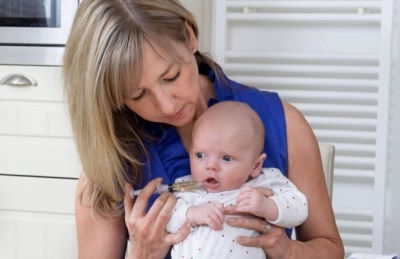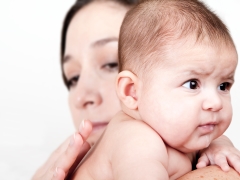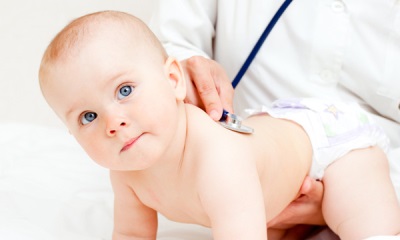Vomiting with mucus in a child
When vomiting, the child's stomach reflexively releases from the food contained in it. Usually this is not overcooked food eaten by a baby, but often in the masses released during vomiting there are various impurities. Why vomiting can produce mucus, is it dangerous and how can it help a child?
What does it look like?
An episode of vomiting usually begins with a nausea attack. Breath of the child quickens, saliva begins to actively stand out from him. He feels weak, his baby's skin turns pale, the baby may sweat, and his temperature may drop or rise. In the masses thrown out through the mouth, parents see leftover food and mucus.
The reasons
Vomiting of mucus is possible with:
- Acute inflammation of the gastric mucosa, the cause of which is chemical poisoning or medication.
- Viral infection of the respiratory tract.
- Surgical abdominal diseases such as bowel obstruction, acute cholecystitis or appendicitis.
- Food poisoning.
- Damage to the brain, for example, due to meningitis, tumors, epilepsy and other pathologies.
- Stress caused by feelings, strong emotions and nervous overload.
- Foreign body in the esophagus.
In babies, the appearance of vomiting, in which mucus is secreted, is a non-dangerous symptom. Gag reflex can be caused by overeating, and mucus enters the secreted mass of the bronchi and nasopharynx.
Should I call a doctor?
In more cases, if vomiting of mucus occurs, you should seek medical help, as this symptom may indicate the development of a serious disease and lead to dehydration. In addition, there is always the likelihood of the contents of the stomach getting inside the respiratory tract of a baby, which is also dangerous for the child (especially for the infant).
Be sure to call the doctor in such situations:
- Vomiting with mucus impurities is combined with other symptoms of the disease - fever, pain, lethargy, drowsiness, loose stools and others.
- In addition to mucus in vomiting blood appeared.
- You suspect that a large object has entered the child's esophagus.
- Before the appearance of vomiting, the child took medicine or ate poisoned food.
- Vomiting mucus appeared after hitting his head or falling.
- The child began to dehydrate.
First aid
- It is important not to leave the child alone after vomiting. Parents should constantly see the baby and help him if the vomiting attack suddenly resumes.
- It should be noted, what is the nature of the vomit, to tell in detail about everything to the doctor, and also to collect a small amount of them for analysis.
- In order to prevent the contents of the digestive tract from entering the respiratory system, the child should not lie on his back. Recommended vertical position or position lying on its side with its head slightly elevated.
- After each vomiting, the baby should be washed, and also give the child some clean water to clean the mouth.
- Until the cause of vomiting of mucus has been clarified, neither food nor any medication should be given to the child.
- An important task is to ensure adequate drinking of a child with vomiting. The best choice would be to use special solutions of salts, which are prepared from pharmacies or at home. Drink give small portions at short intervals.If you are talking about a baby, you can give him to drink saline solutions using a teaspoon, pipette or syringe without a needle.

Treatment
Drug treatment of a child can be given only after finding out the cause of vomiting and taking into account other symptoms. The doctor may prescribe antimicrobial agents, sorbents, antispasmodics, probiotics and other medicines, depending on the diagnosis and condition of the baby.
If a child has neurological impairments, he will be referred for additional examination, and the neurologist will prescribe the treatment. If the cause of vomiting mucus turns out to be a surgical pathology, the child will be urgently sent to surgery and will be scheduled for surgery.












